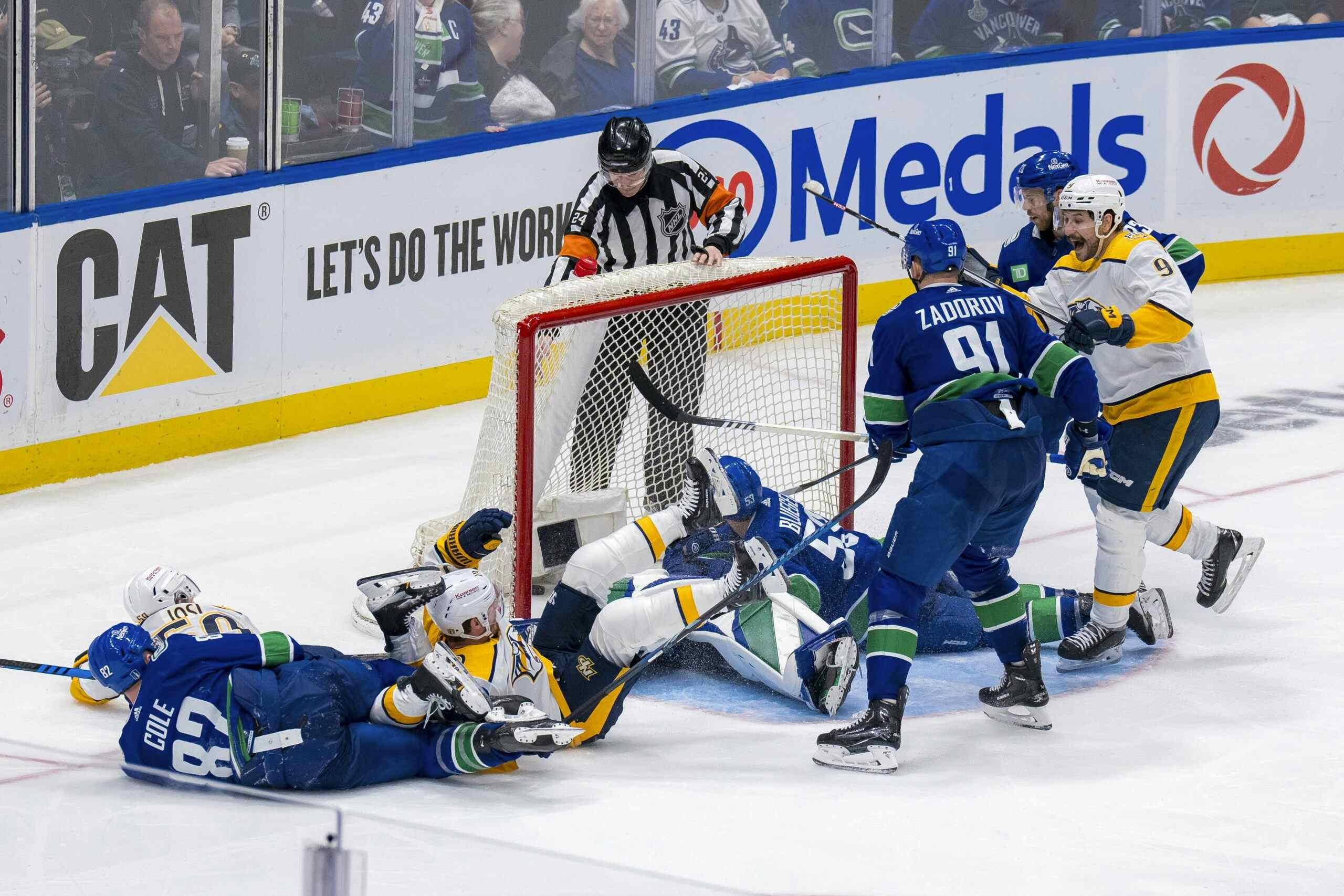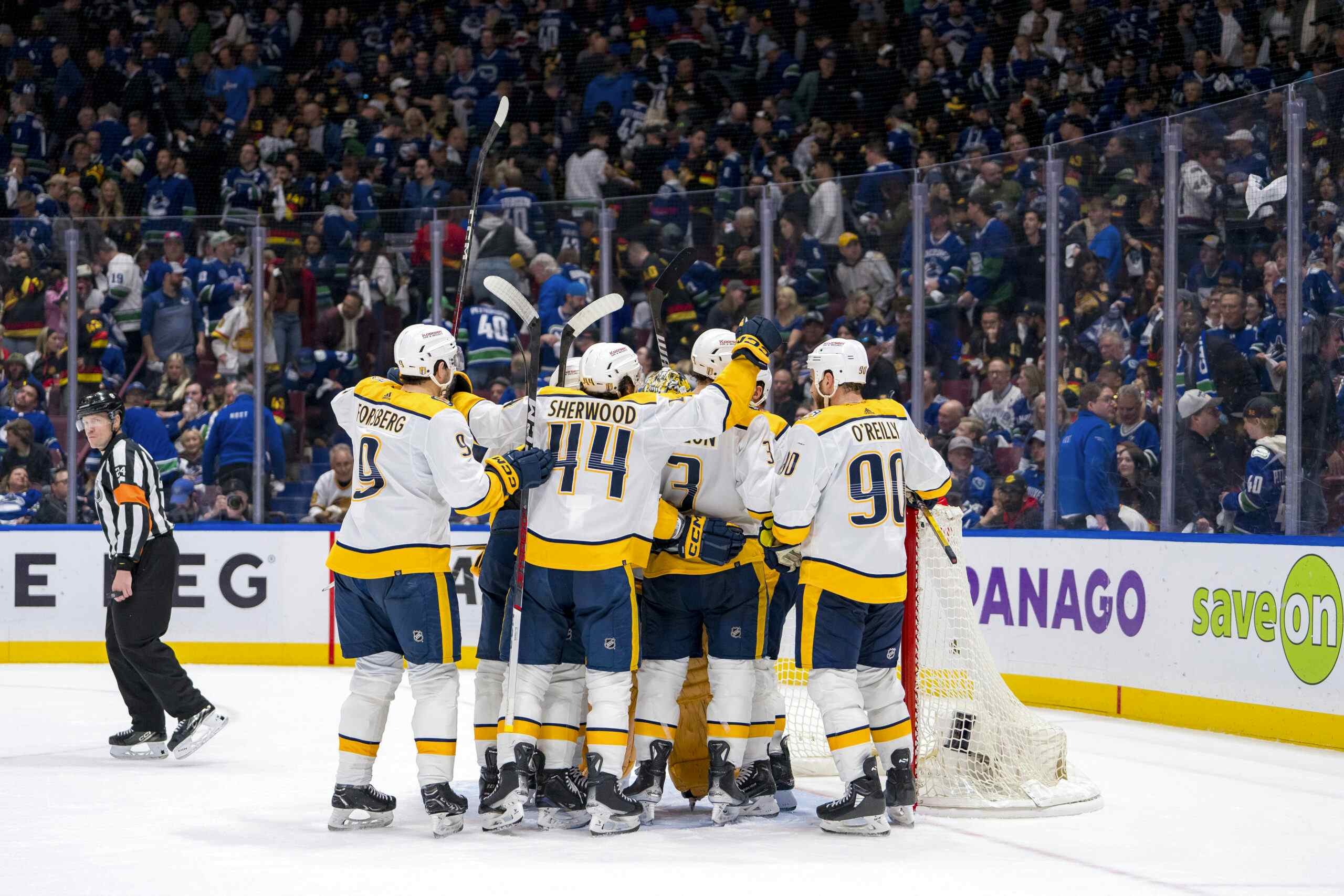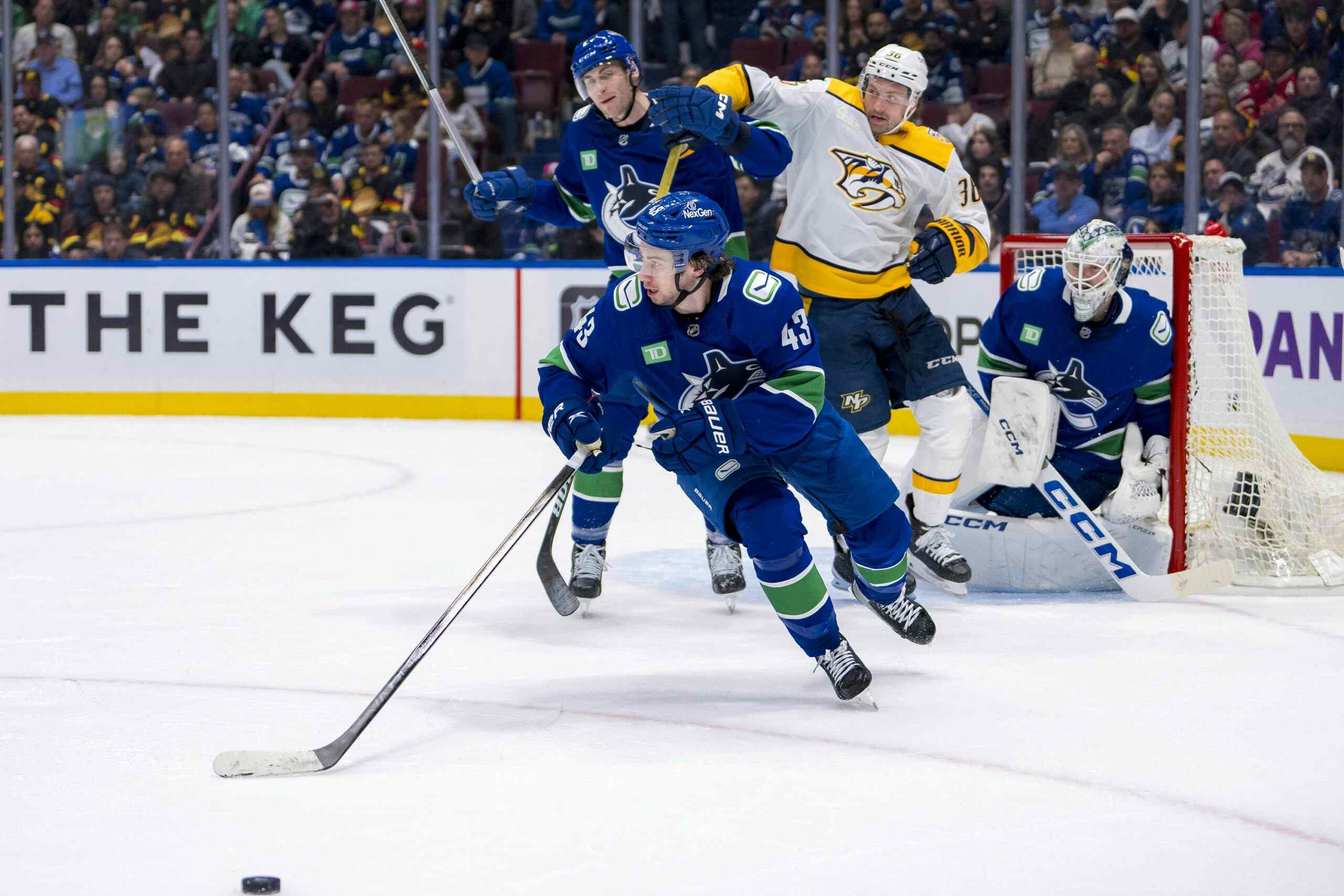WJC Wrap-Up: How The Canucks Fared At The 2017 World Juniors
7 years ago
The World Junior Hockey Championship hasn’t exactly been kind to the Canucks over the past two years. It’s been just one year since Jake Virtanen’s face graced the cover of the Vancouver Province, emblazoned with the phrase, “Goat Medal Winner?”, and while this year’s disappointments lacked the drama of Canada’s 6th place finish in Helsinki, it’s safe to say the optics of Olli Juolevi’s performance this season rival the latter in terms of sewing seeds of doubt in Vancouver.
The Canucks had just two prospects at this year’s tournament, and have only two assists to show for it, as Lukas Jasek’s Czech Republic and Olli Juolevi’s Finland both failed to make the medal round, finishing seventh and ninth, respectively.
It’s far from a good look for the Canucks, who are ostensibly in the midst of a quasi-rebuild, to be watching from the sidelines as prospects from teams above them in the standings light up the tournament’s medal rounds. Tampa Bay’s system, for instance, accounted for five players on Team Canada’s roster alone.
Appearances can be deceiving, though. It’s not as though either of Juolevi or Jasek played poorly at this year’s tournament. When you take a closer look, it appears as though both players were undone more by circumstance than any deficiencies in their play.
OLLI JUOLEVI

Juolevi, being the Canucks’ highest draft pick since they selected the Sedins in 1999, will undoubtedly get the bulk of the attention, and understandably so. He captained the Finnish team to their worst performance since the tournament’s inception, a 9th place finish en route to a relegation series against Latvia. After losing in stunning upsets against the Czech Republic and Denmark, Suomi became the first country to advance to relegation the year after winning the tournament. Juolevi had just two assists, seven less than he managed at the 2016 WJHC.
But it’s not as though Juolevi actively contributed to his team’s demise. By the eyes, Juolevi actually performed quite well, showcasing his trademarked poise with and without the puck, disrupting the opponent’s attack, and helping Suomi generate scoring chances.
Obviously, Olli’s stat line is disappointing, but not without explanation. It’s obvious the Finns really felt the loss of Patrik Laine, Jesse Puljujarvi, and Sebastian Aho, their entire top line from the prior tournament. Finland had only five players returning from the 2016 WJHC, and the newer roster simply couldn’t hold a candle to the one that took home gold last year.
The team also struggled with some awful shooting luck. Despite having no issues generating shots or scoring chances, the Finns scored just six goals in as many games, with only three players managing more points than Juolevi’s 2 assists. Juolevi also averaged a mere 20:35 per game, leading many in the hockey community to question coach Jukka Rautakorpi, who was fired mid-tournament.
It’s worth noting that of the nine points Juolevi garnered at last year’s tournament, all were assists. Losing three good NHL-calibre players was already almost guaranteed to limit Juolevi’s effectiveness. Such a steep decrease in quality of teammates diminishes the likelihood that one of those tape-to-tape passes ends up in the back of the opponent’s net. This was an issue that was also reflected in Juolevi’s OHL totals early on, as the London Knights also felt the loss of their top line of Tkachuk, Marner, and Dvorak, also to NHL graduation.
That’s not to excuse Finland’s poor performance, but any Canucks fans that are concerned about whether or not the team picked the right player at last year’s draft can pump the brakes.
LUKAS JASEK

In the case of Lukas Jasek, the Canucks’ sixth-round pick from 2015, it was more of the same: an initially disappointing outing that looks much better upon further inspection.
Jasek finished with zero points in five games, and was -4, but actually had himself a decent tournament by the eye test. The Czechs weren’t expected to be a particularly competitive bunch, but they delivered an upset to the Finnish team and held in for the majority of the game against the Canadians, eventually losing 5-3.
Jasek’s deployment was slanted heavily towards his own end of the rink, playing almost exclusively in a third-line forechecking role. He was one of the Czech’s most used forwards on the penalty kill, even taking faceoffs to the surprise of many, and saw no power play time. Jasek played in high-leverage minutes for the Czech Republic, but in an almost exclusively defensive sense. To his credit, he still finished tied for the team lead in shots, with 14.
Jasek’s usage, and his apparent aptitude for it, came as a surprise to many who’d followed him since being drafted by the Canucks. Billed as an offensive forward, Jasek showcased surprising two-way acumen, winning puck battles at both ends of the ice and creating scoring chances that his teammates were unfortunately unable to capitalize on. He even appeared, briefly, to have scored a goal, before the goal judge ruled it had been kicked in. Disappointing, to be sure, but it was nice to see a player like Jasek driving to the net.
Against Canada, Jasek was one of the few Czech forwards that didn’t look consistently overmatched, although he did get danced by Thomas Chabot on the game-winning goal. He also looked surprisingly cautious with the puck, and somewhat reluctant to hold on to it at times, perhaps the product of the role in which he was deployed. Still, it was reassuring to see Jasek adapt his game to suit the Czech team’s needs, given that Jasek wasn’t exactly known for playing with grit or his defensive awareness, seeing him play a well-rounded game. If the Canucks can get anything at all out of a sixth-round pick, that’s a win, and it looks as though the Canucks may have something here, even if it’s just an outside chance at a couple of NHL seasons as a role player.





